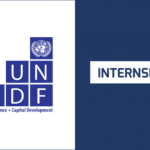All countries around the world are already severely affected by the global lockdown and African countries are not left out. But some countries in Africa are more likely to experience steeper economic repercussion due to their economic structure.
The idea of this post is not to spread fear or panic but to keep you informed and help you identify opportunities to make better decisions. For instance, identifying potential food shortage may spur you to start investing in agriculture post-pandemic. That’s just one way to look at the whole thing. More on this later.
So which countries are more likely to be affected economically after the pandemic and why?
IMF, World Bank, World Economic Forum and just about any other multilateral organization has predicted a global economic contraction. In simple terms, nations will make less money this year, and many people will get poorer. And some countries in Africa are likely to be most affected.
The Western governments are already making drastic efforts to overcome this crisis with large-scale aid programs for the sectors affected by the outbreak; in the health sector, the social security network and economic stimulus measures. The United States has distributed over two trillion dollars to help cushion the economic effect of the lockdown on the private sector. The United Kingdom has done the same with over 65 billion pounds. It’s just like when your house is on fire, you either call the fire service to minimize the damage or you just let the fire wear itself out. The latter option will often prove to be more devastating. Many of the developed countries are taking the fire-service approach because they can afford to.
But it is not possible for African countries that do not have the same resources to put such measures in place. Still, some African countries, particularly those where the agricultural sector is thriving, are likely to overcome the crisis with relatively less harm. For countries that are having a hard time, let’s take Nigeria for example.
Nigeria
Nigeria was already contending with low growth of about 2 percent before oil prices plummeted. Africa’s top oil exporter relies on crude oil sales for about 90 percent of foreign exchange earnings and more than half of government revenue.
According to the Economic Commission for Africa, Nigeria and other oil-producing countries in Africa will lose up to $65 billion in revenues because of the impact of Corona virus on crude oil sales. That’s over 3 percent or 3 out of 100 parts of the entire continents gross domestic product. For Nigeria in particular, the ECA said COVID-19, could reduce Nigeria’s total exports of crude oil in 2020 by between US$14 billion and US$19 billion. That’s a very significant number.
According to the country’s budget office director-general, oil revenues are expected to fall by more than 80 percent. The government had revised its projections and expects the economy to contract by 3.4 percent this year compared with its previous expectation that it would grow by 2.9 percent.
Nigeria was already spending approximately 58 percent to 60 percent of its revenues to service debt. And debt servicing costs were expected to rise by 200 billion naira in 2020; that is about 534 million dollars.
Coinciding with all of these, the Nigerian government recently reviewed VAT rate upward by 50% this year for non-essential goods. And the inflation rate is at 12.26%. Food prices have been most affected inflating up by about 14.9%.
According to the Overseas Development Institute, Nigeria needs to create 6,000 additional jobs every day until 2030 to be able to provide opportunities for young people entering the labour market. On the contrary, more jobs have been lost over this period, taking the projection further upward. 83 percent of businesses in Nigeria are planning to cut down salaries, downsize workforce or implement a combination of both measures to remain afloat, according to the Lagos Chamber of Commerce and Industry.
In a bid to find a solution to all of its many problems, the Nigeria government recently received a loan of 3.4 billion dollars from the IMF. But as is always the case, the loan came with conditions that the federal government must meet including increasing electricity tariff and VAT rate.
All of these put the country in an unpleasant situation that may take a while to recover post-pandemic. Other major oil producers facing similar situation as Nigeria includes Angola, Algeria Libya, Sudan and Equatorial Guinea.
Angola
The economic lockdown is also spelling more turmoil for the Angolan economy, which has been in recession since the 2014-2016 oil crash. Like Nigeria, Angola is heavily dependent on crude oil, with oil and minerals accounting for up to 92% of its total export revenue. The country’s debt is also high reaching 95% of its GDP. This put’s the country in a bad position to raise money from the international market.
Youth unemployment in Angola was at 56.5% pre-pandemic, and likely to increase further post-pandemic. Angola’s annual inflation continued to climb to 19.62 percent in March of 2020 from 18.74 percent in the previous month. This was the highest inflation rate since May of 2018, amid the continued devaluation of the Kwanza and the impact of the new corona virus.
South Africa
South Africa is another country bracing for a recession amid the COVID-19 outbreak. But it has a more diversified economy than most other countries, although it still relies heavily on commodities for its foreign earnings.
South Africa appears to be in a better position than most other countries. It responded rapidly with relatively massive testing for COVID-19 infection. In an effort to protect the economy and fend off looming hunger crisis, the countries 500 billion rands, the equivalent of $26billion package will target large increases in existing welfare grants, funds for protecting jobs and a 200 billion rand loan guarantee scheme for pandemic-hit businesses. South Africa is also requesting a loan from the IMF for the first time, as a last resort.
According to Azia Khan, chief Africa and Middle East economist at Standard Chartered, “although this will probably set South Africa on a much higher debt path, given the scale of the stimulus, it may also help to protect the economy from a deeper economic contraction”.
Also, tourism is a major export for South Africa. But due to the ban of international travels across the globe, the tourism industry has come to a standstill, and will likely take time to recover even after the lockdown is eased.
Tourism is an important economic sector for many countries in Africa like Algeria, Egypt, South Africa, Kenya, Morocco, Tunisia, and Tanzania. The travel and tourism sector accounted for 22.8 million direct and indirect jobs across the continent in 2017. The state of the industry may result in the majority of these people losing their jobs across the continent.
What can you do about this?
On the macro scale, you and I cannot do much; it’s the government’s responsibility to introduce policies that will support the diversification of the economy and minimize our dependence on natural resources. But there is a lot that can be done on the micro-level.
- Africa will need more entrepreneurs that will create jobs for the rising rate of unemployment. And this offers opportunities for problem solvers.
- You have to start looking for opportunities on a global level. The global economy is far more integrated today than it was decades ago. In the early 1960s less than 5 percent of all the goods and services produced in the world moved across an international border; today it is closer to one third. The world is also more interconnected today. A young person in Nigeria can offer technology services to someone in Canada today through the internet. Now is the time to start developing technology skills with global demand. Your competition is no longer local; your competition today is global. And because businesses across the world will be looking for cost effective services during tough times, they will likely be looking across their border.
- If we are going to experience food shortage in the continent, then it may just be the right time to start investing in agriculture and agricultural technology.
Here is one question for you; observing from your environment, what do you think life will be like after the pandemic? Share your thoughts in the comment section below. If you found this piece helpful, share it with someone. YOUR SUCCESS MATTERS!









